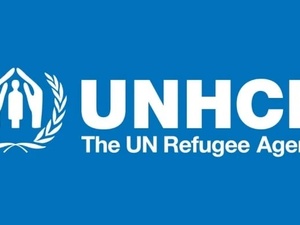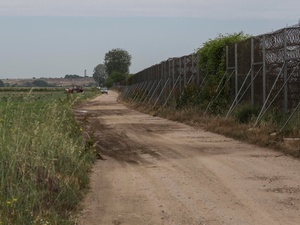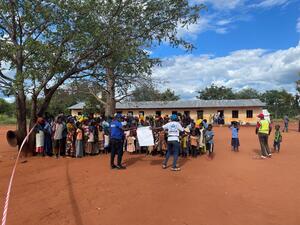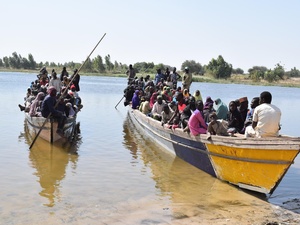UNHCR extremely concerned for Ahwazi refugees extradited from Syria to Iran
UNHCR extremely concerned for Ahwazi refugees extradited from Syria to Iran
UNHCR was disturbed to learn that four Iranian Ahwazis in Syria who had earlier been recognised as refugees have been extradited by Syrian authorities to the Islamic Republic of Iran. We are concerned about their well-being in Iran and about this action by the Syrian government, which had previously indicated the four refugees - who had been detained earlier this year - were still in detention in Syria.
In May and June of this year, UNHCR expressed serious concern at the highest levels about the arrest by Syria of seven Ahwazi refugees. As a result, three Ahwazis were released but four remained in detention. Since then, UNHCR has repeatedly asked the Syrian Ministry of Foreign Affairs for access to them. Although this was not granted, we did receive various verbal assurances that the four Iranians were well and would not be deported to their country of origin. The authorities were aware that the four were mandate refugees for whom resettlement places had already been secured abroad.
UNHCR learned a few days ago from close contacts of the four that they had already been deported to Iran in May. Two of the four had managed to call their family members and tell them they had been detained immediately upon arrival in Iran and were now awaiting their sentence. One reportedly told a relative that he was "about to be executed." Upon further investigation, UNHCR was informed that two others had also been deported.
UNHCR is extremely worried about the four refugees. Extradition does not mean that a refugee or asylum seeker loses his or her international protection status. UNHCR has a mandate to intervene in these cases and therefore strongly appeals to Iranian authorities to ensure the well-being of the four and allow for a fair trial and the right to due process. UNHCR also appeals for access to the four refugees and we are prepared to find alternative solutions for them.
UNHCR also calls on Syria to abide by its obligations under international law and to ensure that the principle of non-refoulement is recognised. According to Article 34 of the Syrian Constitution, the deportation of refugees to countries where they will face persecution should be prevented. Moreover, non-refoulement is a principle of customary international law which prohibits states from returning a refugee or asylum seeker to territories where there is a risk that his or her life or freedom would be threatened on account of race, religion, nationality, membership of a particular social group, or political opinion. This principle has precedence over any bilateral or multilateral extradition agreement.
Ahwazi refugees came to Iraq and Syria during various periods. Recent human rights reports have expressed concerns about the deteriorating human rights situation in Khuzestan province in Iran, home to nearly 2 million Iranians of Arab descent.






